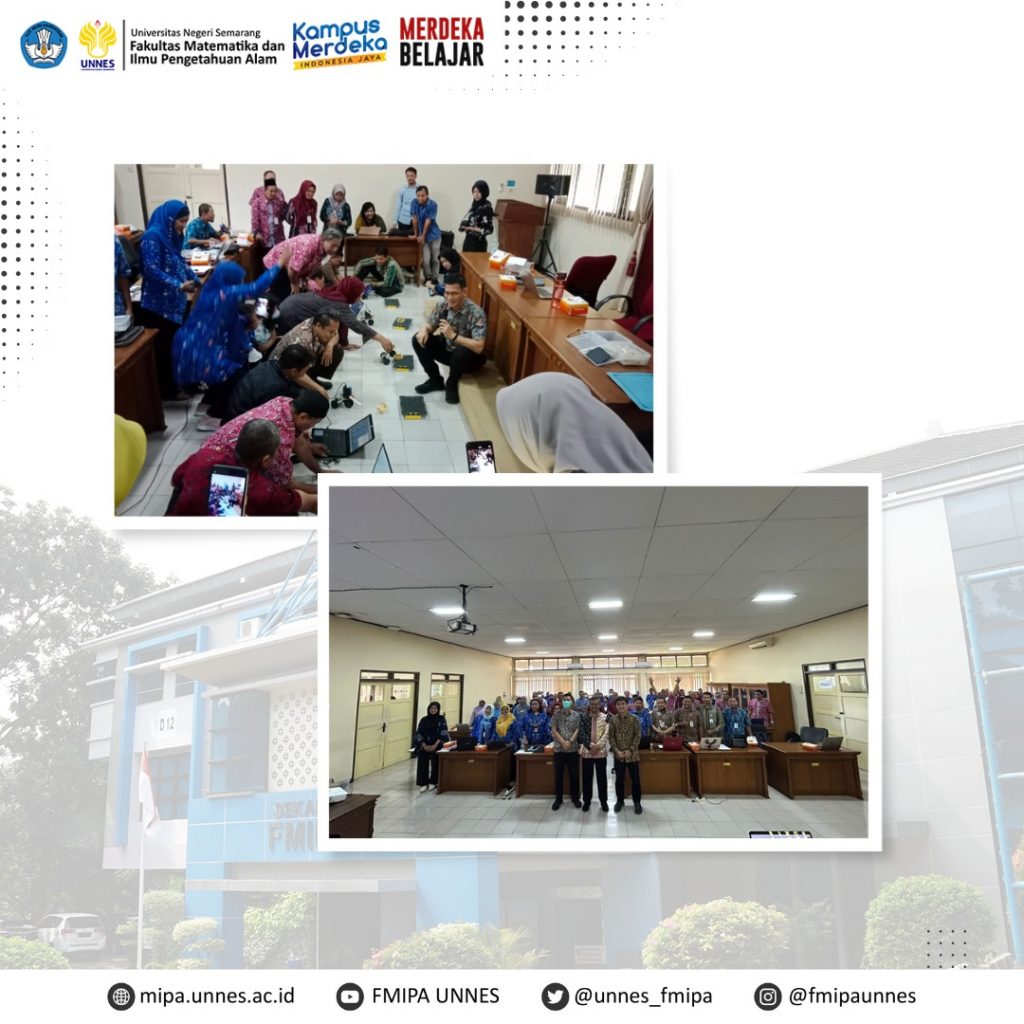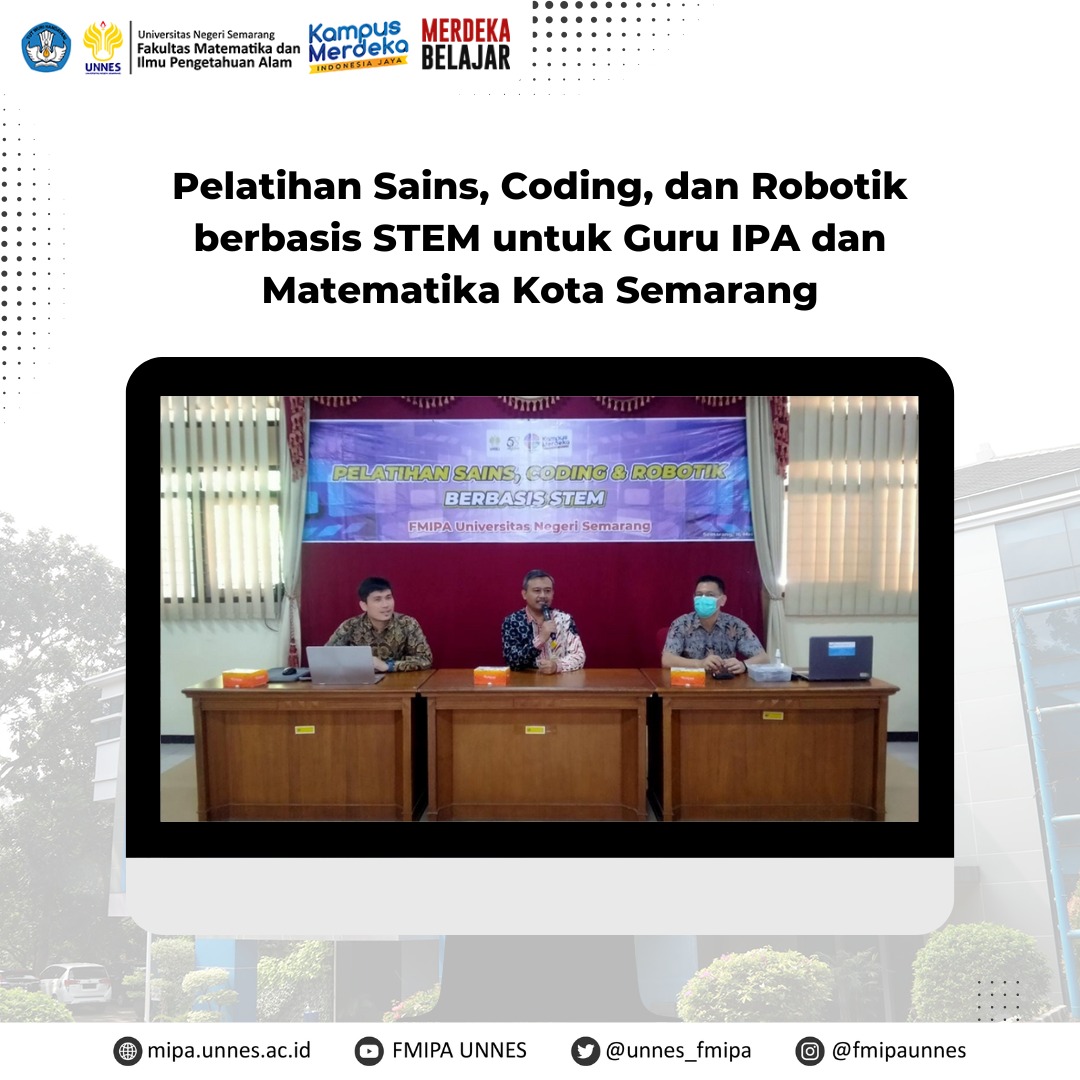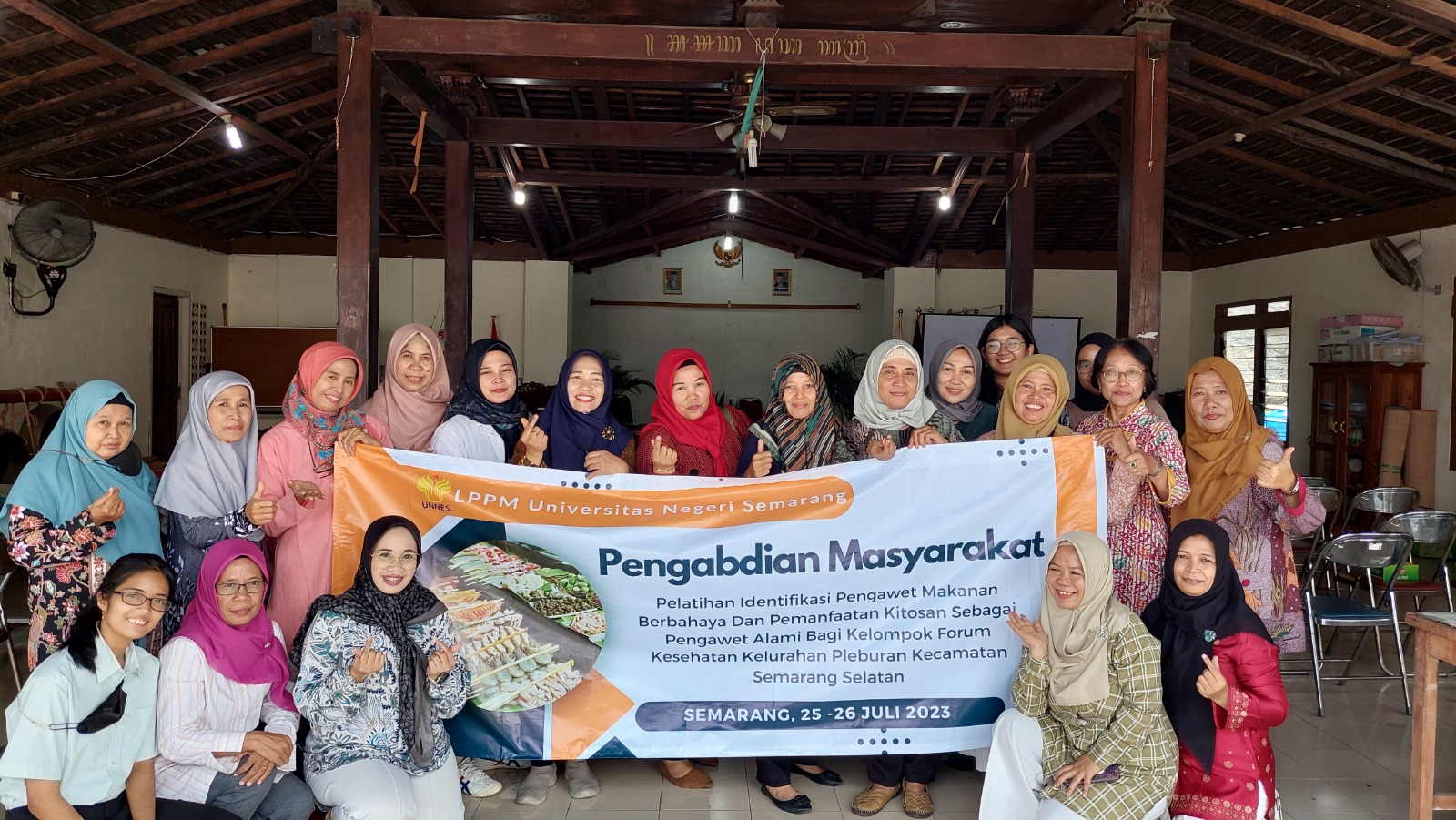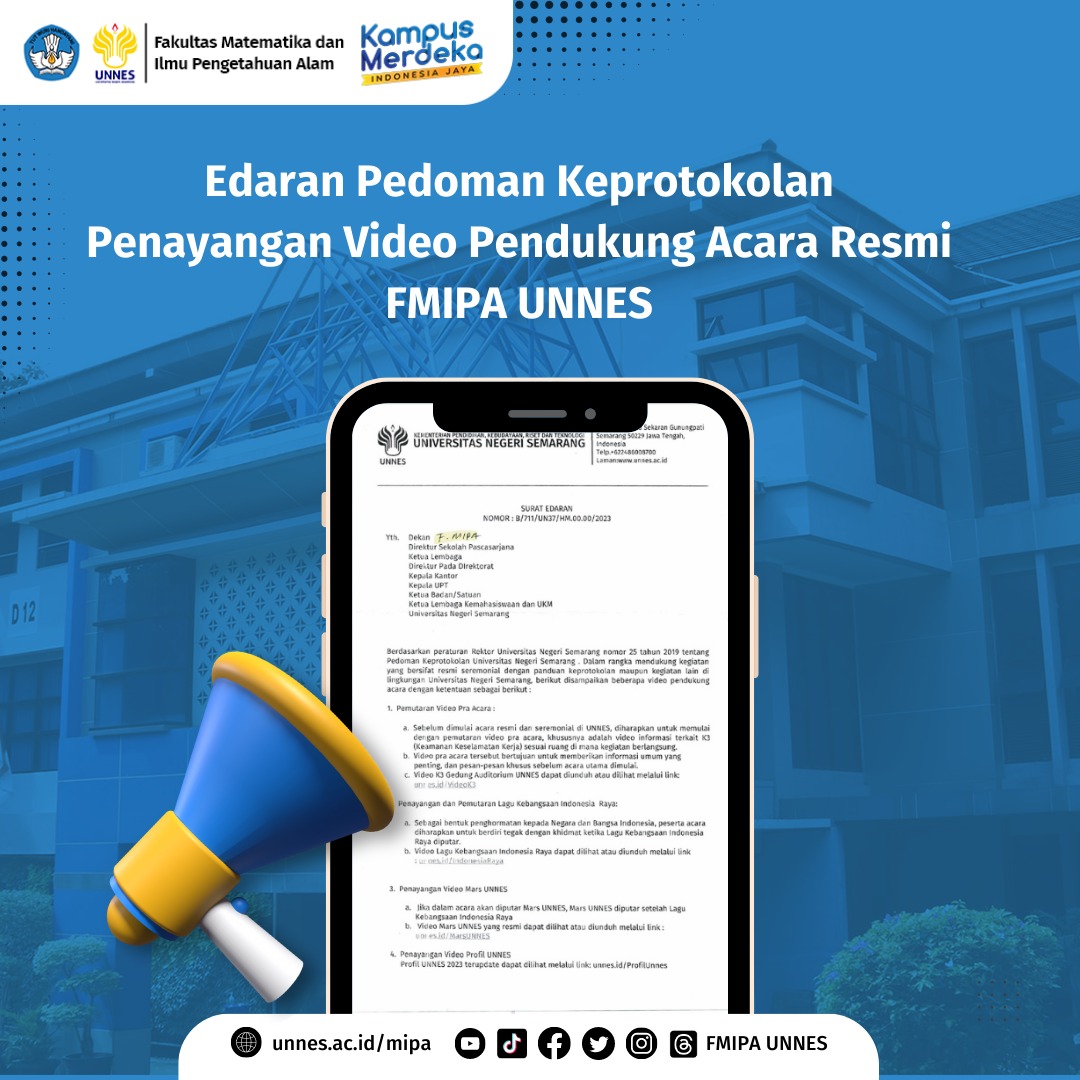The Faculty of Mathematics and Natural Sciences at Universitas Negeri Semarang (FMIPA UNNES) organized a STEM-based science, coding, and robotics training for Science and Mathematics teachers in Semarang City in collaboration with Rumah Edukasi, one of the providers of STEAM (Science, Technology, Engineering, Art, Mathematics) education facilities in Indonesia. This training is part of the inauguration event of UNNES STEM Educenter, which is a series of events for the 58th anniversary of UNNES.
The offline activities took place at the D6 building of FMIPA UNNES and were attended by 50 Science and Mathematics teachers from various junior high schools in Semarang City on Tuesday (May 16). The event was opened by Dr. Masrukan M.Si., the Deputy Dean of Student Affairs at FMIPA UNNES. “In the current development of science and technology, it is crucial to deepen skills in using technology. As educators, the science, coding, and robotics training based on STEM can provide new knowledge that can be applied in teaching.”
The training is part of the opening of UNNES STEM Educenter, which serves as an exhibition venue for STEM products. With this series of events, teachers can deepen their understanding of STEM learning and the products that can be created. This is driven by the limited understanding of teachers regarding STEM products, especially in the fields of science, coding, and robotics. On Tuesday (May 16, 2022), a STEM-based science, coding, and robotics training was conducted, featuring highly competent speakers in these fields. The participants were very enthusiastic about this activity, which started at 8:00 AM and ended at 1:00 PM.

The training team from FMIPA UNNES consisted of Arif Widiyatmoko S.Pd., M.Pd., Ph.D., Arka Yanitama S.Si., M.Si., Riza Arifudin S.Pd., M.Cs., Stephani Diah Pamelasari S.S., M.Hum., Melissa Salma Darmawan S.Pd., Aji Saputra, and Desy Fitria Astutianingtyas. There were two speakers in the training. The first speaker, Arif Widiyatmoko S.Pd., M.Pd., Ph.D., explained the importance of ICT skills in the 21st century, which can be facilitated through STEM-based science, coding, and robotics learning. The second speaker was Mulia Anton M.S.Psi., a psychologist, who explained about STEM-based science, coding, and robotics and demonstrated its implementation through the design of a simple robot and coding using the Scratch for Arduino (S4A) application. The groups of teachers designed simple projects in teams using the S4A application integrated with robotics, and then they were tested directly. As an appreciation, the best group that could complete the project in a short time was given a reward.
“This activity is part of the celebration of UNNES anniversary and the opening of UNNES STEM Educenter. After the training, teachers can visit the UNNES STEM Educenter located in the Digital Center building at UNNES. Technology-integrated products such as Arduino and sensors can enrich teachers’ knowledge about the development of STEM products that can be implemented in teaching,” said Arif Widiyatmoko, S.Pd., M.Pd., Ph.D., the training coordinator and chairman of UNNES STEM Educenter.
The training session concluded with a group photo. We hope that this training will be beneficial for Science and Mathematics teachers in junior high schools and high schools in Semarang City in implementing STEM-based science, coding, and robotics products in.





